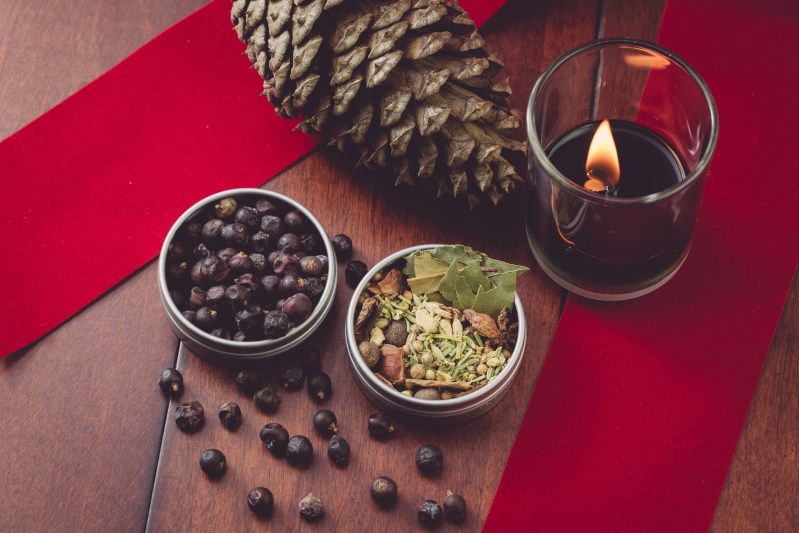- 1. A mix of ginger and other spices will give your gin the holiday “spirit.”
- 2. The original Homemade Gin Kit.
- 3. This gin-based cocktail looks like Christmas in a glass.
Making homemade booze has always been an appealing prospect. For some reason, brewing your own beer, bottling your own wine, or, hell, even honing your own stock of honey wine mead, just seems like a good idea. And, really, it is. Any alcoholic drink tastes better when it comes from your own handmade private reserve (well, most of the time.)
Earlier this year, we covered The Homemade Gin Kit, which allows the amateur spirit maker to easily make their own bottles of gin. Since we are smack in the middle of the holiday season, we figured it was a good idea to highlight the Christmas Gin Kit, the company’s specialty blend of botanicals, herbs and spices that makes a liquor to fill you with all kinds of yuletide cheer.
Replacing the citrus and summertime flavors of the original Gin Kit’s mix, the Christmas Gin Kit includes cinnamon, clove, ginger and rosemary, which will immediately bring to mind images of roaring fires, bright white Christmas lights, and the smell of pine in the air. All you need to do it pair these spices, and the included juniper berries (a requisite for all gin), with the original Gin Kit (two Italian glass swing-top bottles, a double mesh strainer, and a funnel), an affordable bottle of vodka (to transform into your gin) and you’re all set.
The instructions are simple, and we’ve already given you our step-by-step process to using the original Gin Kit. You can make your own Christmas gin to give as a holiday gift, or you can use the small-batch to serve out cocktails at your own home party. The people at Homemade Gin Kit have come up with a perfect holiday cocktail recipe that mixes cranberry juice, orange liquor, and a rosemary liquor, which has been described as “look[ing] and tast[ing] like Christmas in a glass.”
Whether you’re buying the Christmas Gin Kit for yourself, or giving it out as gift, you really can’t lose. Either way, the holiday spirit (pun intended) is about to increase in your life.





